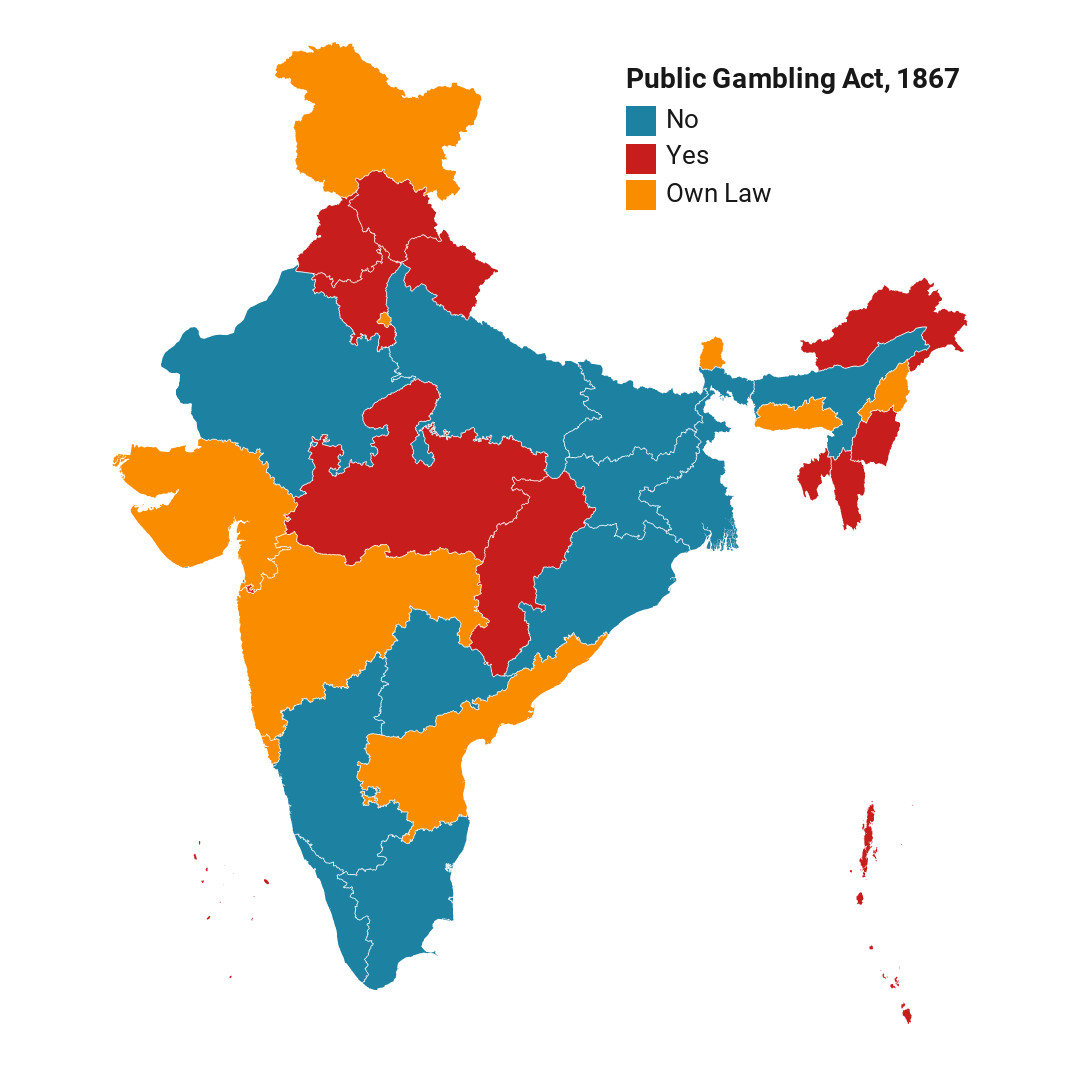It is undeniable that gaming has a long historical tradition in India. From chess to Kabaddi (a traditional South Asian sport) to dice and card games, many Indian youths have grown up watching their parents, and even grandparents, play these games.
Thus, games have been, are, and will continue to be an inseparable part of Indian culture, both in the past, present, and future.
With the development of mobile internet and video games, these traditional games have also started to become digitized, bringing about a series of changes in policies and regulations.
A report by KPMG points out that as the penetration rate of smartphones in India has gradually climbed to over 500 million, the market size of the Indian gaming industry has grown to $130 billion. This has forced the Indian government to pay more attention to the legality of funds and tax standards in this industry.
For a considerable period, the Supreme Court of India has used "skill advantage" as the most important basis for determining the legality of online games, which has led to the division of the entire online gaming industry's policies and regulations into two major categories:
Traditional probability-based games and their various digital derivatives;
Casual and social skill-based games;
It is worth noting that most of the federal laws about the gaming industry existed even before India's independence, and there is no specific federal legislation targeting online gaming. With the development of online real-money games, this new format has attracted the attention of state courts:
Odisha and Assam prohibit all forms of gaming and gambling activities, also enacting a ban on skill-based games;
In Maharashtra, the Bombay Gambling Act defines online gaming as a prohibited criminal activity;
Telangana has banned all online and offline gambling activities through the Telangana Gaming (Amendment) Regulation, 2017, and the Telangana Gaming (Second Amendment) Regulation, 2017;
Currently, 14 states/territories (marked in red in the image below) follow the Public Gambling Act of 1867, allowing both online and offline gambling activities:
We can see that in terms of attitudes towards real-money games, some states/territories have chosen a complete ban, while others are still striving to keep their laws and regulations up to date with the times, and the establishment of new orders also means new tax revenues. In these states/territories, Nagaland and Sikkim are two pioneers, each having enacted specific legislation concerning online gaming in their states and allowing its existence.
Let's start with Sikkim. On June 28, 2008, Sikkim passed the Sikkim Gambling Act, also known as the Sikkim Online Gaming (Regulation) Rules, 2008. This law covers the regulation and management of both online and offline games and also specifies the tax structure for such activities in Sikkim. Moreover, by involving experts from the online gaming industry, the regulation is also subject to periodic amendments.
However, Sikkim's laws strictly limit skill-based online games to be allowed within India, and have issued national operating licenses to gaming companies including Adda52 and Khelo Poker. Sikkim and Goa also issue operating licenses to offline casinos.
Next, let's look at Nagaland.
The Nagaland Prohibition of Gambling and Promotion and Regulation of Online Games of Skill Act, 2016, is the only state law in Nagaland concerning online gaming. It specifies that gambling is prohibited in Nagaland, but skill-based online games are allowed, including some betting games where skill predominates over chance.
The familiar card games, Rummy, chess, sudoku, and virtual sports are all within the allowed range. This means that gaming companies can not only offer these online games but also legally promote real-money games through various social media, television, and websites.
So, how can one obtain a license for skill-based online games in Nagaland?
① The applicant must be an Indian national or an independent company entity registered in India;
② The applicant must not have any criminal record;
③ The controlling interest and decision-making power of the company's main applicant must be within India;
④ The applicant must fill out the relevant application forms and pay an application fee of 50,000 rupees;
⑤ The applicant must submit along with the application form documents including RNG certificate, software certificate, business license, and tax-related documents;
Once the application is successful, the applicant also needs to pay an annual fee of 1 million rupees per game, or a total of 2.5 million rupees per year for multiple games. Additionally, 0.5% of the gaming company's revenue will be included in the state/territory tax revenue.
Typically, the operating license will be issued by the Director of the Nagaland Gaming Authority within six months. To date, K365 Web Assets Pvt Ltd, Club Empire Tech PvtLtd, Quantumskill Gaming and Tech Pvt Ltd, and WYZ Games Pvt Ltd have all obtained licenses for card games.
Sachar Gaming Pvt Ltd is the first company to obtain a multi-type real-money gaming operating license, allowed to operate games including virtual sports leagues, test games, card games, auction games, and Rummy. Other gaming companies are also continuously applying.
It is important for gaming entrepreneurs venturing into India to note that even without a license, it is still possible for startups to release real-money games, but from a long-term perspective, if one hopes to operate long-term and build brand effectiveness, an official operating license is still a worthwhile credential to pursue.
It is certain that due to the rapid development of the online gaming industry in India in recent years, related laws and regulations are increasingly actively keeping up with the times and industry development, and more industry experts and practitioners' participation and cooperation are needed. Only in this way can the Indian gaming industry truly become a healthy and beneficial industry contributing to the national economic growth.












